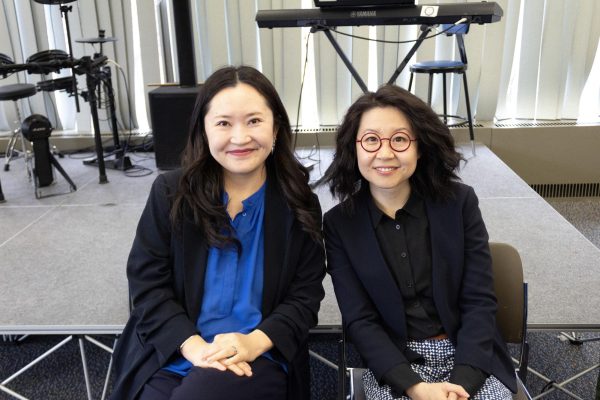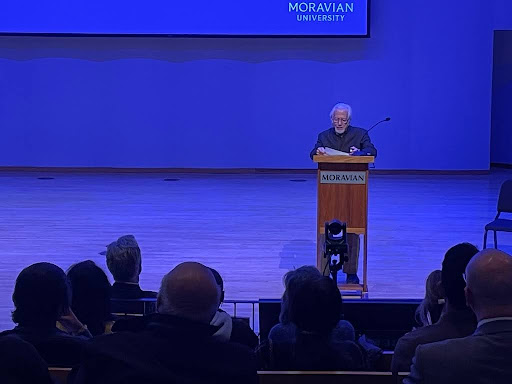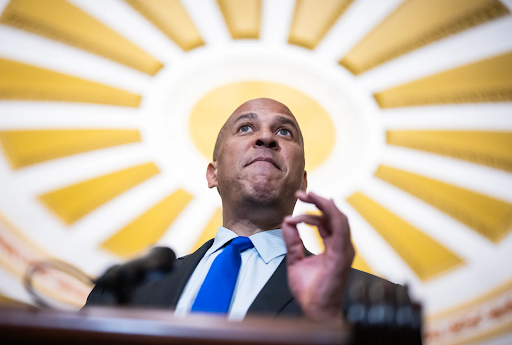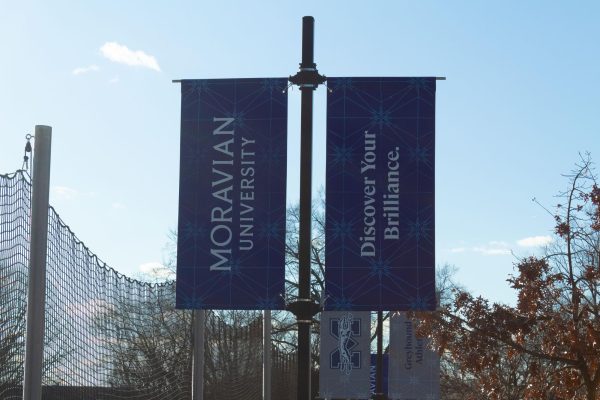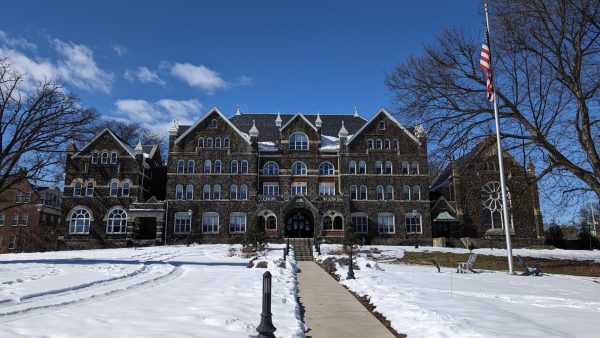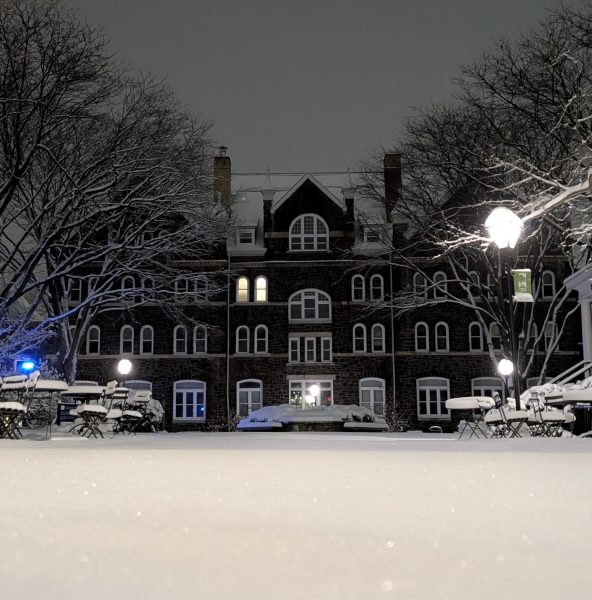Chat & Chew: Black Panther Edition
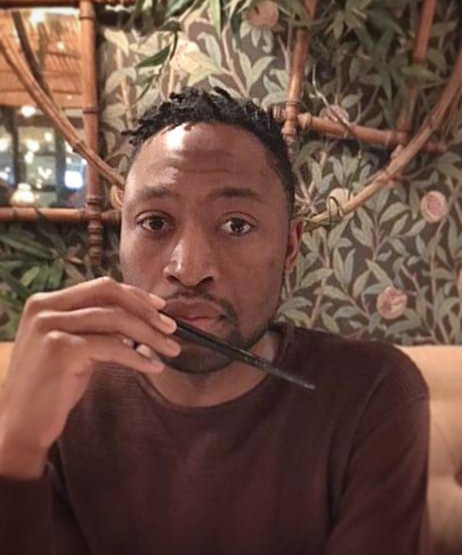
Dr. Robert LaRue
In celebration of Black History Month, the Office for Diversity, Equity, and Inclusion (DEI) hosted a Chat & Chew on Feb. 7, 2019, about director Ryan Coogler’s critically-acclaimed movie “Black Panther.”
The event attracted about 40 students, faculty, and community members who exchanged thoughts over food and drink before settling in for the discussion. After warm greetings and an introduction, guest speaker Dr. Robert LaRue of the English Department was introduced and met with applause.
“Black Panther” revolves around the rightful inheritance of both the Black Panther and the control of Wakanda, to either protagonist T’Challa (Chadwick Boseman) or antagonist Killmonger (Michael B. Jordan). Killmonger challenges T’Challa’s place as “king,” threatening the technologically-advanced nation. Wakanda, its culture, and its resources can either be kept isolated from the rest of the world and preserved in the eyes of T’Challa, or it can be militaristically led by Killmonger through global exchanges involving Wakanda’s precious technological resource—vibranium.
Dr. LaRue proposed that the film’s main conflict over Wakanda is representative of the internal struggles found in the black population around the world today. He went on to explain that the film is unique in that it offers images not traditionally associated with blacks, moving away from tradition representations of oppressed slaves to those of powerful leaders of their own people. These images of heroism, power, and coexistence, he goes on to say, “narrate a very perpetual conversation for African Americans particularly.” Seeing blacks portrayed in positions of leadership, he contends, is empowering for African Americans.
Coogler represents “ancestral planes” and their differing spiritual significance to T’Challa and Killmonger through the landscape itself. T’Challa’s plane comprises the naturalistic openness of Africa, where he is often greeted by his father, serving as a reminder of the sacred power of the Black Panther. The conflicts between the father and son over the responsibilities of the Black Panther and Wakanda demonstrate the internal divide that exists among Africans as well.
On the other side, Killmonger possesses a very different ancestral plane: an apartment in Los Angeles, which spiritually resonates with him. Here, he has to search for his destiny without the guidance of the map that is contained inside an ancestral book that belonged to his father.
There is a clear distinction in how information is passed from generation to generation, with T’Challa receiving it orally and Killmonger gaining it through reading. Killmonger’s pursuit of the truth is a representation of what it means to be African American, belonging to something greater ancestrally and as a part of a culture with its own history.
At this point the presentation concluded and led to an open discussion. With the quotation, “With all due respect. . . what can a nation of farmers have to offer the rest of the world?” on the projection screen, DEI members encouraged people to participate in the conversation.
At this, numerous hands shot up, with audience members commenting on topics ranging from the oppression of blacks and white colonialism to sexism in “Black Panther.” Since the flow of conversation focused mainly on thoughts of oppression, privilege, and conflict, the discussion centered around the current black experience around the world.
Dr. LaRue noted that the black America of today has a large impact on the ideas and images about black experiences around the world. The film supports this belief when Killmonger says, “Bury me in the ocean with my ancestors that jumped from the ships because they knew death was better than bondage.” Dr. LaRue pointed out that the film asks the audience to go on a journey here, when it references the Atlantic Ocean and its ties to enslavement. In addition to black America’s influence on the black experience, African culture and other forms of blackness throughout the world are also sources from which thoughts are pulled. The developing relationship between T’Challa and Killmonger (a representation of America and Africa) evidences this.
While the Black Panther is very different from the likes of Superman, Batman, and Spider-Man, he is a protective figure who indeed does not discriminate. The group noticed that the film managed to bring different audiences together, similar to the diversity of its cast, assigning women important and empowering roles, as well as giving black culture a movie of its own.
At the conclusion of the Chat & Chew, the group considered Killmonger’s motives, which represent the values of Western Society. It was agreed that although Killmonger’s attempt at weaponizing the world at the expense of Wakanda was wrong, he can not be blamed without blaming the system of which is he is a product.




